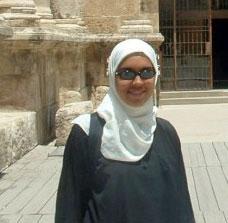
Scholar examines counter arguments to blasphemy in ''mainstream'' Salafism
Salafism has grown in appeal in some countries according to the scholar. 'In a modern context, due to funding, political incentives in some countries and overall ideological appeal Salafism has taken centre stage, and gained far more attention ideationally than traditionalist Islam.'
Traditionalist Islam uses the corpus of juridical texts that have been written by jurists over the course of the last 14 centuries from all four schools of Islamic jurisprudence, and has 'very sophisticated legal tools of analysis that give us the capacity and potential to produce legal opinions, which are faithful to the revelatory sources but also sensitive to context', stressed Islam, adding that modern Salafist approaches 'often reject these modes of interpretation, choosing to pursue a stance which appears more literalist but in fact is less faithful to the original sources'.'Many of Ibn Taymiyya's works — particularly those that speak against more canonical legal works — are used by contemporary Salafist intellectuals to counter traditionalist arguments,' the expert highlighted.
What is significant here is that these views are 'very rarely representative of mainstream orthodoxy as defined by traditionalist Islam'.However, because Salafist views garner 'so much attention, their views are looked upon as mainstream', she explained.
'An excellent resource for those looking to learn more would be the Royal Aal al-Bayt Institute for Islamic Thought here in Jordan,' the scholar underlined.Qubaysiyyat
As her doctoral dissertation focuses on blasphemy as a legal category in Islamic law, her master's thesis focused on the Qubaysiyyat, an international Muslim female revivalist movement originating in Syria and spreading to several other countries, including Jordan.
The movement is named after Munira Qubaysi. Jordan's version of the movement was named Tabbaiyyat, after Fadia Tabbaa.
After finishing several publications on blasphemy and her dissertation, which she hopes will turn into a book, she plans to return to her project on the Qubayysiyyat as a second book project.'My project on the Qubaysiyyat originated as master's thesis research at Princeton University, for which I engaged in fieldwork and data collection for a year and a half,' Islam noted.
The Qubaysiyyat has been one of the largest Sunni Muslim women's revivalist movements in the world, she explained, adding that 'it has been one of the dominant faces of Islamism in Syria over the past four decades'.'Before the civil war, the movement was estimated to have several hundred thousand adherents within Syria.'
In addition, sources confirm their presence in at least 12 other countries, including Jordan, Islam underlined.Their publications, which include writings for the general public on religious topics of popular concern, as well as multi-volume scholarly commentaries and works on Islamic jurisprudence, Koranic sciences and Hadith (Prophet Mohammad's sayings), have reached an audience of millions in the Middle East and beyond, she stressed.
'The religious authority of the leaders of the Qubaysi movement is based on their mastery of different fields of religious knowledge as traditionally trained female 'ulama', their strict religious practice and their attainment of successful professional careers,' said Islam.Many revivalist and pietist movements prescribe attainment of the spiritual and sacred by an abandonment or rejection of the material and secular, Islam highlighted, stressing that 'in contrast, Qubaysi religious activities have largely promoted women's upward socioeconomic mobility and participation in civil society through their emphasis on pursuing all forms of useful knowledge, both sacred and secular'.
The researcher also cited their 'strong religious networks', which, she said, provide 'significant mutual support for members' in pursuing spiritual and material goals.The Qubaysi movement has invested in creating hierarchical structures of authority, informal networks of association and independent reservoirs of financial subsistence –– all factors which contribute to the stability of their teaching structures, the scholar continued.
Due to varying levels of religious freedom, differing competitive religious markets and the impact of structural factors, the movement holds differing levels of growth and impact in different regions, she suggested.'In the United States for example, while the movement has gained popularity amongst many women, comparatively speaking, their success has been limited compared to its success in the Middle East,' Islam explained.
'The fact [that] members of the movement are unable to meet in localised settings, as well as the fact that English emerges as the lingua franca of religious education as opposed to Arabic, force the movement's teachers to adopt alternative teaching tools in order to adapt to their changing environment.'This movement has largely gone unnoticed in academic literature despite its influence in the Middle East, the scholar said.
It is 'highly controversial' given the degree of devotion followers are viewed as having to the movement's leaders, as well as certain conservative practices which may in fact be socially empowering for women in some settings but might not be in others.'Either way, given its widespread presence, extensive influence among millions of individuals and the scholarly impact of the group's teachers, knowing more about this movement will help us better understand the religious-political landscape of the Middle East,' Islam noted.
'It will also help us understand in what ways women have created a space for themselves to engage as religious authorities in a challenging context,' she said.'What factors allow women's successful engagement in traditional religious scholarship? What factors deter it in the contemporary period? These are important questions to ask, given the significant impact that religious rhetoric often has on the well-being of women in their everyday lives,' the scholar added.
'Observing what factors lend to women successfully attaining positions of religious authority is important, as increased representation is a prerequisite to scholarly circles taking women's concerns and issues more seriously.'

Legal Disclaimer:
MENAFN provides the
information “as is” without warranty of any kind. We do not accept
any responsibility or liability for the accuracy, content, images,
videos, licenses, completeness, legality, or reliability of the information
contained in this article. If you have any complaints or copyright
issues related to this article, kindly contact the provider above.

















Comments
No comment